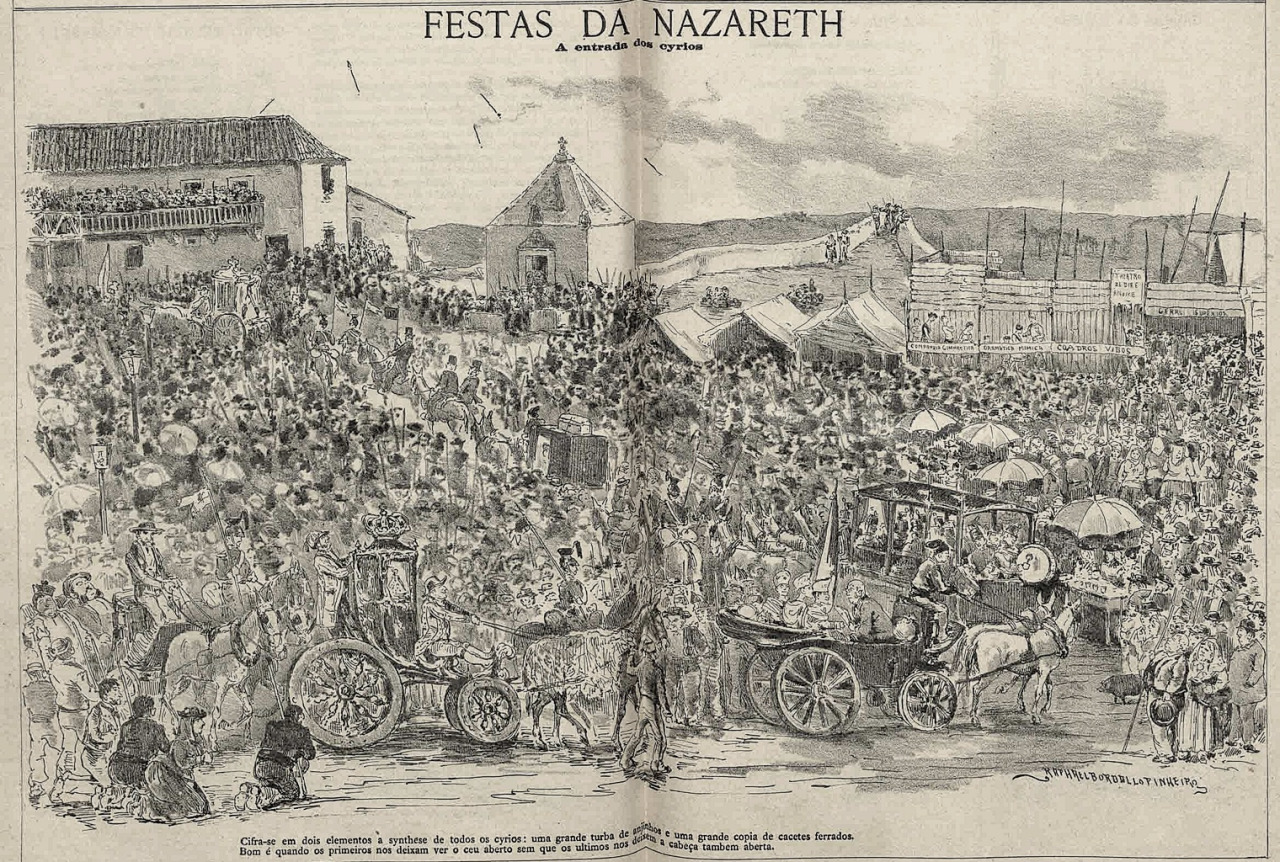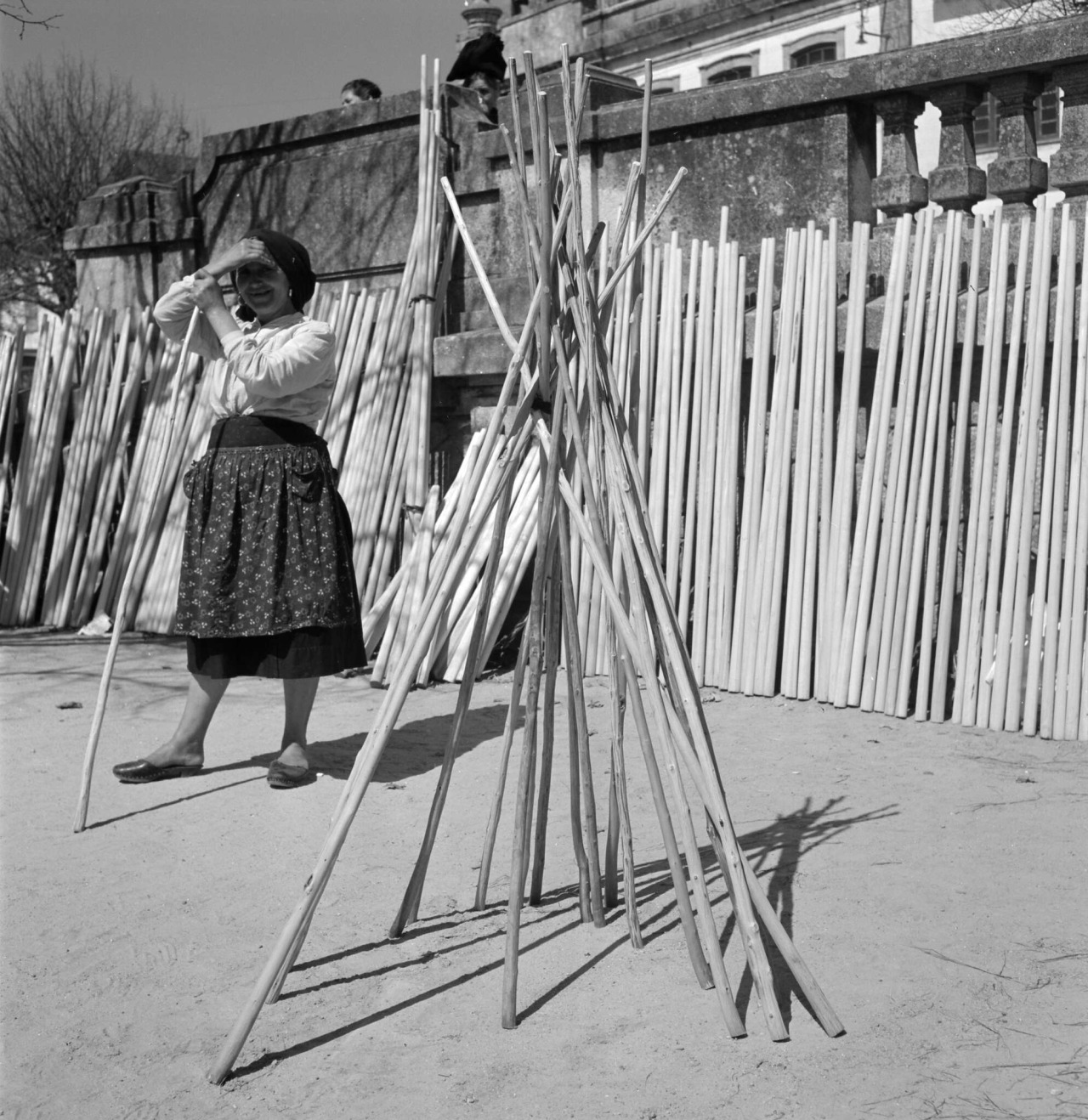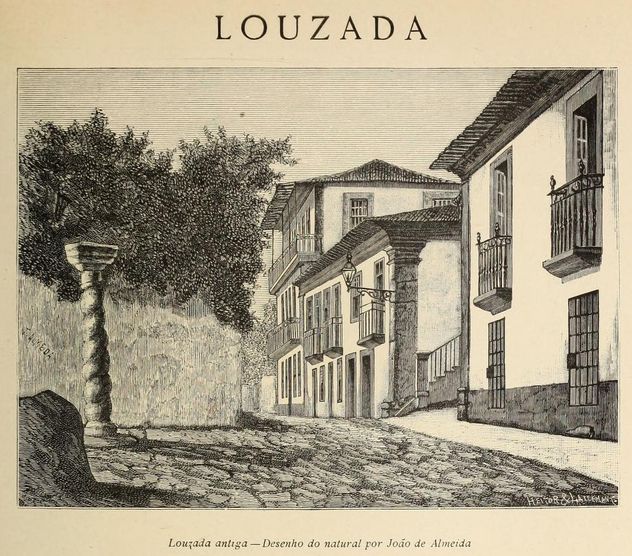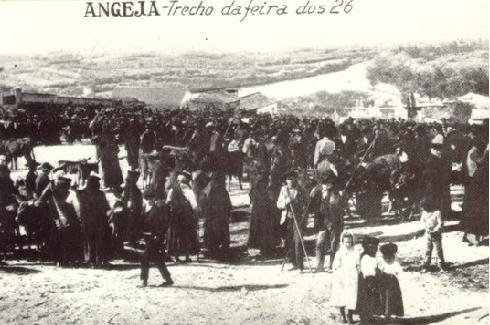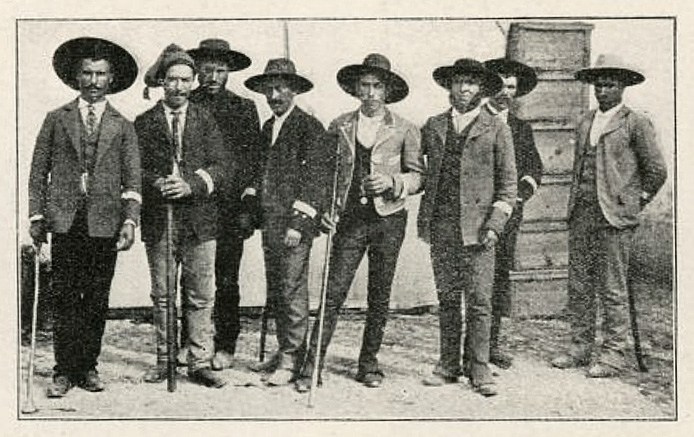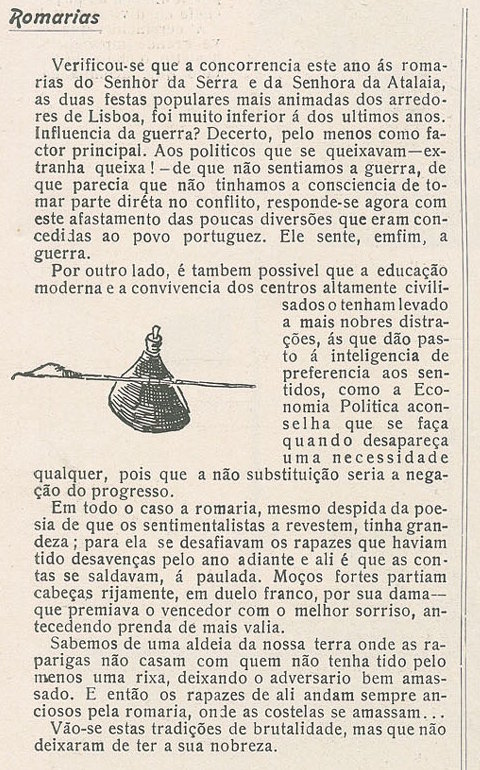 Scroll down for English translation: Wartime Festivals
Scroll down for English translation: Wartime Festivals
Verificou-se que a concorrência este ano ás romarias do Senhor da Serra e da Senhora da Atalaia, as duas festas populares mais animadas dos arredores de Lisboa, foi muito inferior á dos últimos anos. Influencia da guerra? Decerto, pelo menos como factor principal. Aos políticos que se queixavam -estranha queixa! – de que não sentíamos a guerra, de que parecia que não tínhamos a consc1enc1a de tomar parte directa no conflito, responde-se agora com este afastamento das poucas diversões que eram concebidas ao povo português. Ele sente, enfim, a guerra.
Em todo o caso a romaria, mesmo despida da poesia de que os sentimentalistas a revestem, tinha grandeza; para ela se desafiavam os rapazes que haviam tido desavenças pelo ano adiante e ai é que as contas se saldavam, à paulada. Moços fortes partiam cabeças rijamente, em duelo franco, por sua dama, que premiava o vencedor com o melhor sorriso, antecedendo prenda de mais valia.
Sabemos de uma aldeia da nossa terra onde as raparigas não casam com quem não tenha tido pelo menos uma rixa, deixando o adversário bem amassado. E então os rapazes de ali andam sempre ansiosos pela romaria, onde as costelas se amassam… Vão-se estas tradições de brutalidade, mas que não deixaram de ter a sua nobreza.
“ilustração Portuguesa” Nº602 – 3 de Setembro de 1917
Wartime festivals
There was a small afflux at the two most popular festivals near Lisbon, Senhor da Serra and Nossa Senhora da Atalaia had much less people that in the last years, influence of the war? For sure, as a main factor. For the politicians that complained – and what a weird complain – that we didn’t feel the war, and didn’t have conscience that we were taking part of the conflict, the answer is now this absence from the very few occasions the Portuguese people have for themselves to enjoy. The people finally feel the war.
Even so, the festival had a grandness in itself, in it the boys challenged each other solving the rivalries accumulated along the year, and the the problems were settled, with staff fights. Young and strong boys breaking each other’s heads fiercely, in a franc duel, because of a lady, that would reward the winner with her best smile, anticipating a most valuable gift.
We know of a village where the girls don’t marry a man that had not made it into at least a brawl, leaving his opponent smashed. So the boys of the region are always anxious for the festivals, where ribs get broken… This brutalities are going away now, but they still have their nobility.
in “ilustração Portuguesa” Nº602 – 3 de Setembro de 1917

